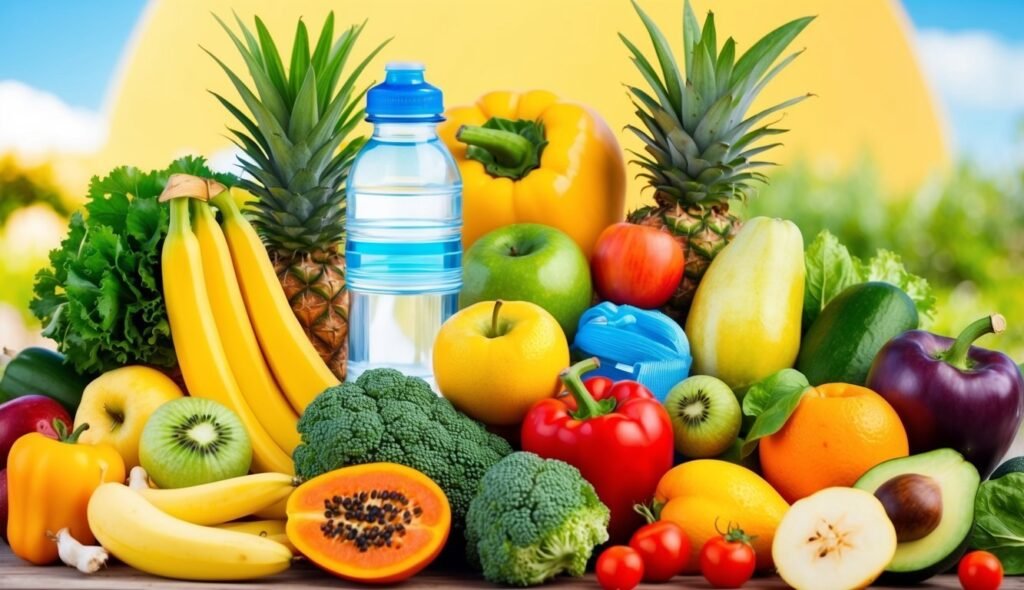Staying hydrated is essential for maintaining overall health and well-being, especially as we navigate our busy lives.
It’s not just about drinking enough water; supporting electrolyte balance plays a key role in how our bodies function day to day.
These tips will help you understand how to effectively maintain hydration and keep your electrolytes in check.
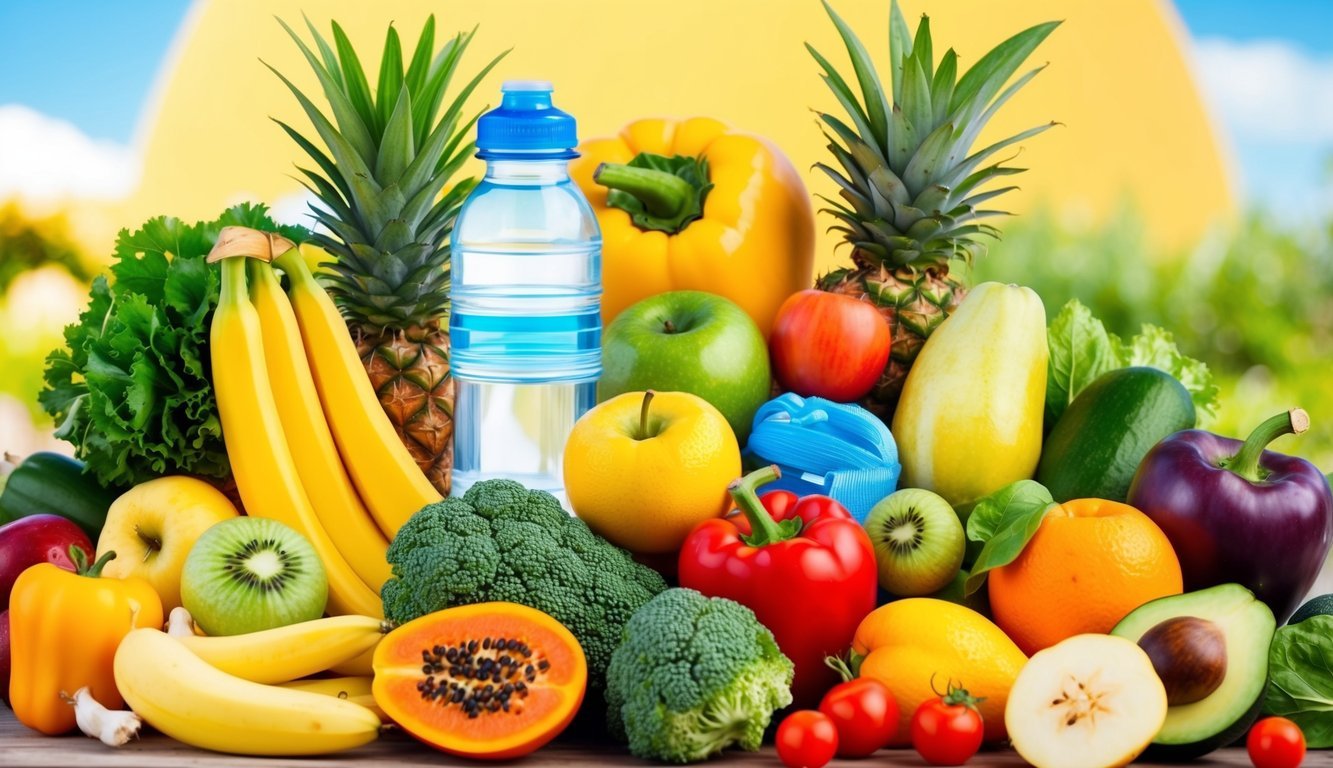
I’ve learned that simply reaching for a glass of water isn’t always enough.
I need to pay attention to what I consume and how it supports my hydration levels.
This article will explore practical strategies that make it easier to keep my body properly hydrated and balanced, so I can feel my best.
1) Carry a reusable water bottle

I always keep a reusable water bottle with me.
It’s an easy way to stay hydrated throughout the day.
Whether I’m at work, exercising, or running errands, having water on hand makes a big difference.
By carrying my own bottle, I can drink water whenever I feel thirsty.
It’s much easier than finding a source to refill.
I also find that I tend to drink more when my bottle is within reach.
Choosing a bottle with clear measurements helps me track my intake.
This little feature keeps me accountable for staying hydrated.
A reusable water bottle is also better for the environment.
It cuts down on single-use plastics, which is a win for both me and the planet.
Plus, I can choose a design that fits my style.
Incorporating this simple habit into my daily routine has greatly improved my hydration levels.
It’s one of the simplest and most effective tips I’ve adopted.
Set reminders to drink water
I often struggle to remember to stay hydrated throughout the day.
Setting reminders has become a game changer for me.
I use my phone to create alerts that remind me to drink water regularly.
A simple trick is to set an alarm or a timer for every 30 to 60 minutes.
This helps me take a few sips habitually.
I aim to finish my current glass of water and refill it at each reminder.
Using a reminder app can be very effective too.
I can customize the alerts based on my schedule, so they fit seamlessly into my day.
Sometimes, I even set a reminder before meals.
This not only ensures I’m drinking water but also aids in my digestion.
With consistent reminders, I find it so much easier to hit my daily hydration goals.
Plus, staying hydrated helps me feel more energized and focused.
Keeping my water intake on track makes a noticeable difference.
Include water-rich fruits like watermelon
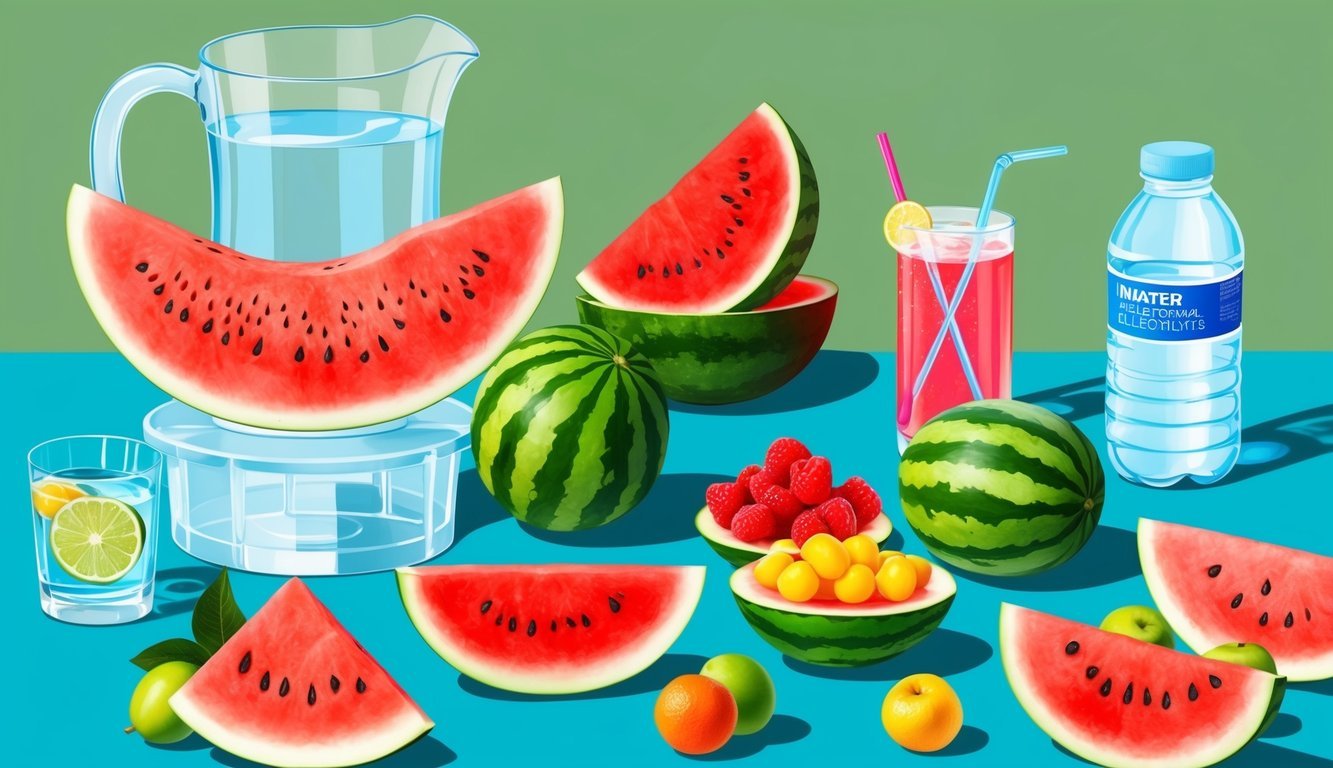
In my quest to stay hydrated, I find incorporating water-rich fruits to be essential.
Watermelon is one of my favorites.
With a water content of about 92%, it’s a delicious way to quench my thirst.
When I slice into a fresh watermelon, I can enjoy a refreshing snack that’s both hydrating and nutritious.
It’s not just about the water; it’s packed with vitamins A and C, which support my overall health.
Beyond watermelon, I also love adding cucumbers and strawberries into my meals.
Cucumbers are even higher in water, reaching 97%.
The combination of these fruits helps me maintain hydration levels throughout the day.
Eating water-rich fruits is a simple, tasty strategy to support hydration.
I often blend them into smoothies or toss them into salads.
This not only enhances the flavor but also boosts my fluid intake without the need to drink more plain water.
4) Consume electrolyte-rich drinks
When I’m looking to stay hydrated, I often reach for electrolyte-rich drinks.
They are great for replenishing essential minerals that my body loses, especially during exercise or on hot days.
Coconut water is a favorite of mine.
It’s naturally high in potassium and offers a great balance of electrolytes.
An 8-ounce serving has some sodium, which is helpful for hydration.
I also enjoy adding a pinch of sea salt to my regular water.
It might sound odd, but it’s an easy way to get sodium without extra calories or sugars.
Milk is another option I sometimes overlook.
It contains calcium, magnesium, and other electrolytes, making it a convenient choice after a workout.
There are also plenty of sports drinks available.
Just be mindful, as some can be high in sugar.
I always check the labels to find ones with a better balance of nutrients.
By incorporating these drinks into my routine, I stay on top of my hydration and support my electrolyte levels effectively.
5) Drink coconut water
I’ve really come to enjoy coconut water as a go-to hydration option.
It’s packed with essential electrolytes, making it an excellent choice after a workout or on a hot day.
What I find appealing is how it contains potassium, which helps support heart health and can lower blood pressure.
One cup gives me about 400 milligrams of potassium, which is a solid boost.
Coconut water is also a natural source of magnesium.
This mineral aids in muscle function and energy production, which is crucial, especially when I’m active.
I appreciate that it has fewer calories and sugar compared to many sports drinks.
This makes it an ideal option for those of us looking to stay hydrated without unnecessary additives.
Plus, the taste is refreshing and mildly sweet.
I often reach for it when I want something different from plain water, and it feels like a treat.
Drinking coconut water not only hydrates me but also supports my electrolyte balance effortlessly.
6) Add a pinch of sea salt to water
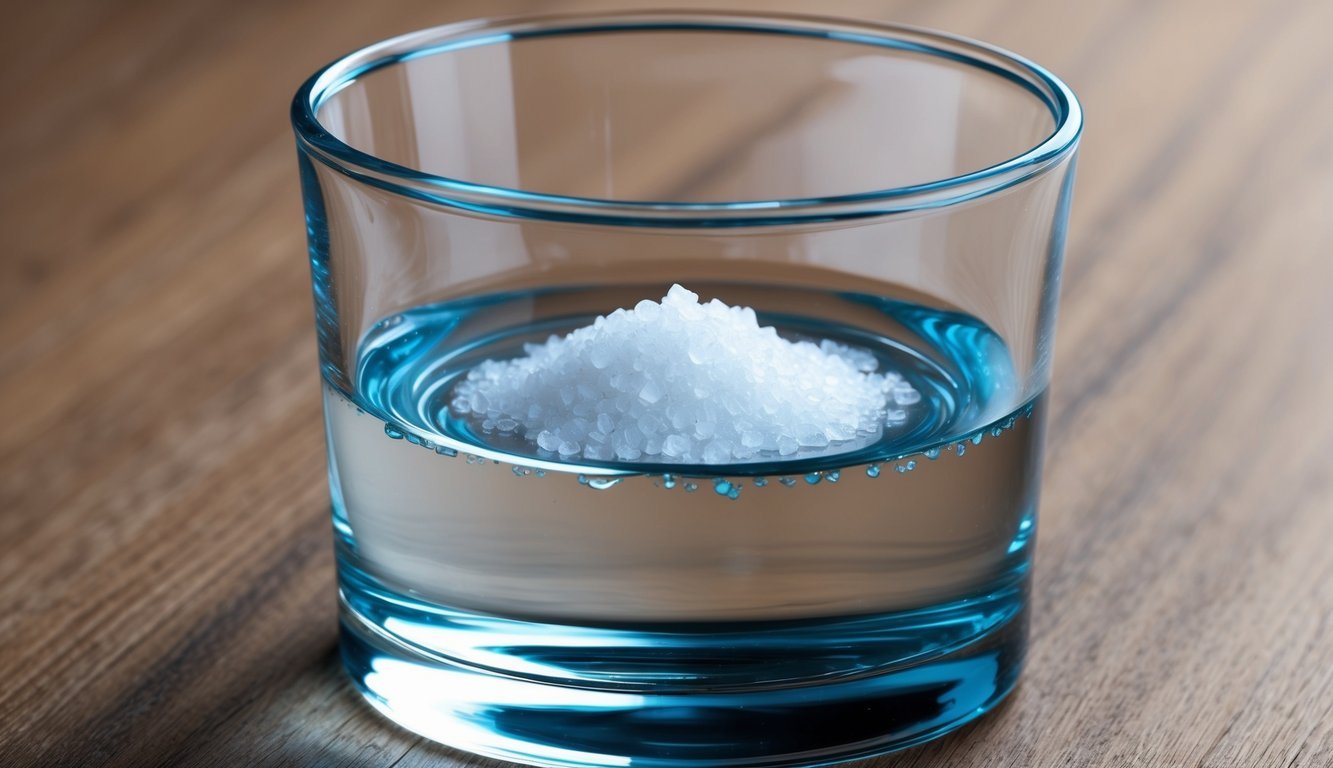
I’ve started adding a pinch of sea salt to my water, and it’s become a game changer for hydration.
Just a small amount—about 1/4 teaspoon per liter—can help restore electrolytes lost during the day.
Sodium plays a crucial role in maintaining fluid balance in the body.
When I sweat, I lose sodium, so adding a bit of salt back into my water helps me feel more refreshed.
Some people worry about salt intake, but this small addition can actually assist with hydration.
It makes the water taste a little different, but I find it’s a refreshing change.
It’s an easy way to enhance my water, especially during workouts.
Plus, I love knowing I’m supporting my electrolyte balance as I go about my day.
7) Snack on cucumber slices
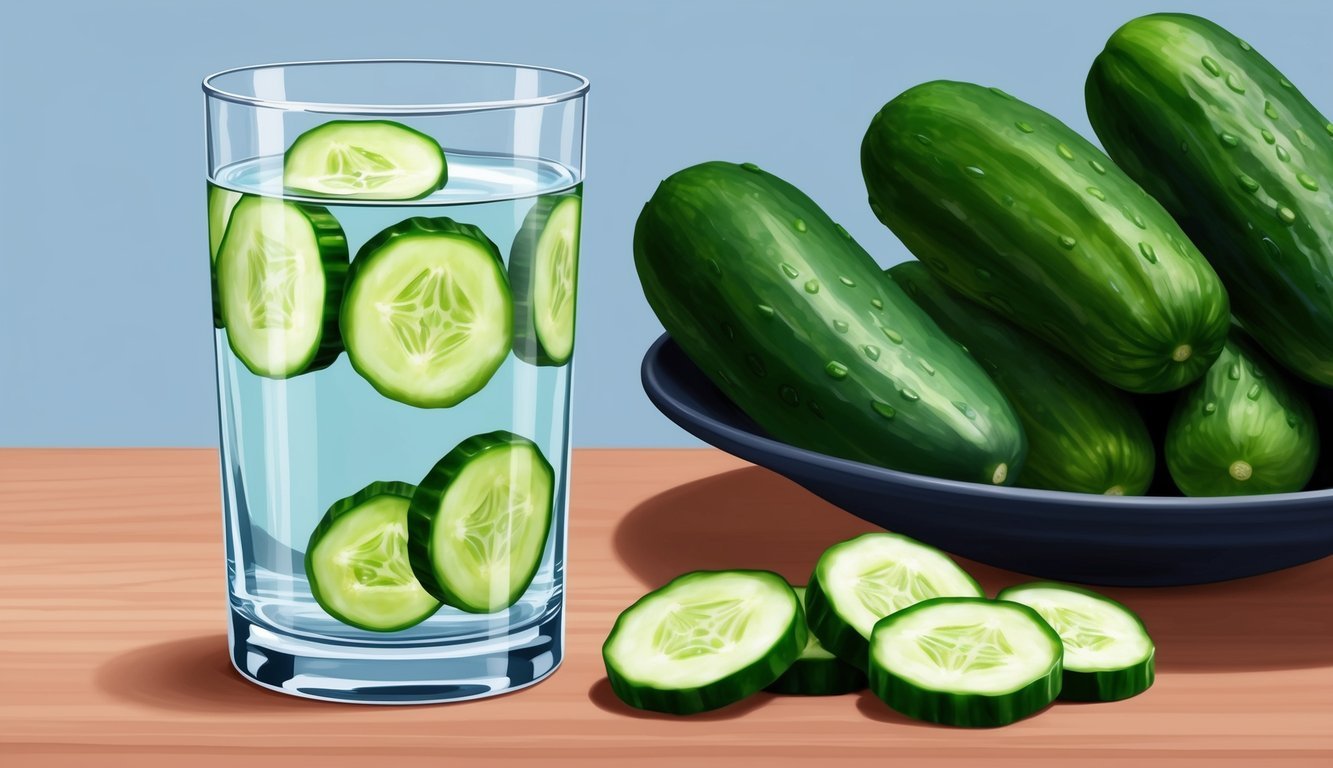
I love snacking on cucumber slices because they are so refreshing and hydrating.
With their high water content, they help keep me hydrated, especially on hot days.
Cutting up a cucumber is quick and easy.
I often keep some ready in the fridge for a crisp snack whenever I need it.
Sometimes, I add a sprinkle of salt or dip them in hummus for extra flavor.
Cucumbers are low in calories, making them a guilt-free option.
They also contain vitamins and minerals that can support my overall health.
I feel great knowing I’m choosing something nutritious when I reach for cucumber slices.
These crunchy bites are perfect for balancing my electrolytes, too.
Staying hydrated is essential, and cucumbers offer a tasty way to contribute to that.
I find that including them in my diet keeps me feeling energized throughout the day.
8) Use electrolyte tablets
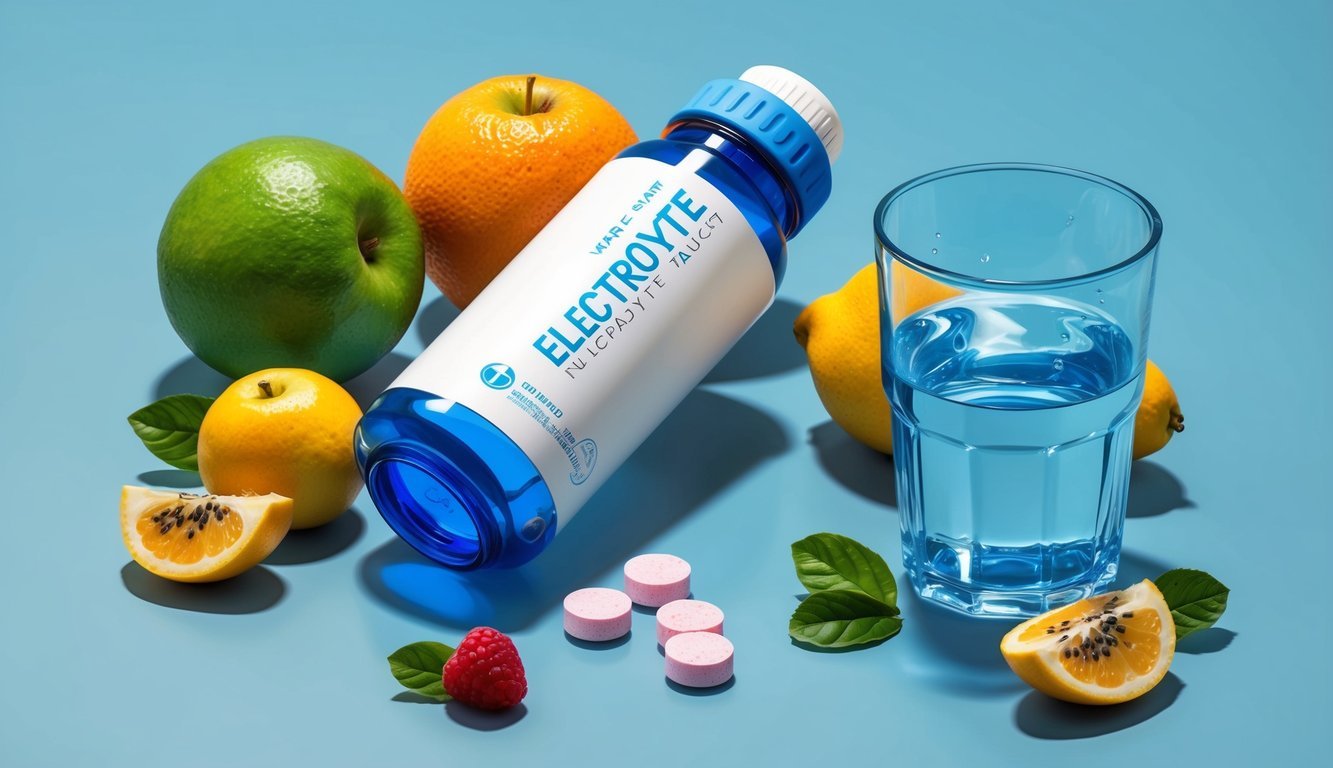
I often turn to electrolyte tablets when I need a quick hydration boost.
These tablets are convenient and help replenish essential minerals like sodium, potassium, and magnesium.
When I feel dehydrated or after intense workouts, I find that electrolyte tablets can make a real difference.
They provide more than just water, helping to maintain my body’s fluid balance more effectively.
I appreciate the ease of tossing a tablet into my water bottle.
It dissolves quickly, giving me extra hydration on the go.
Plus, many come in different flavors, which makes drinking water more enjoyable.
Using these tablets regularly can support my hydration needs, especially during the hotter months or when I’m active.
They’re a simple addition to my routine that goes a long way in keeping my electrolyte levels in check.
9) Avoid excessive caffeine
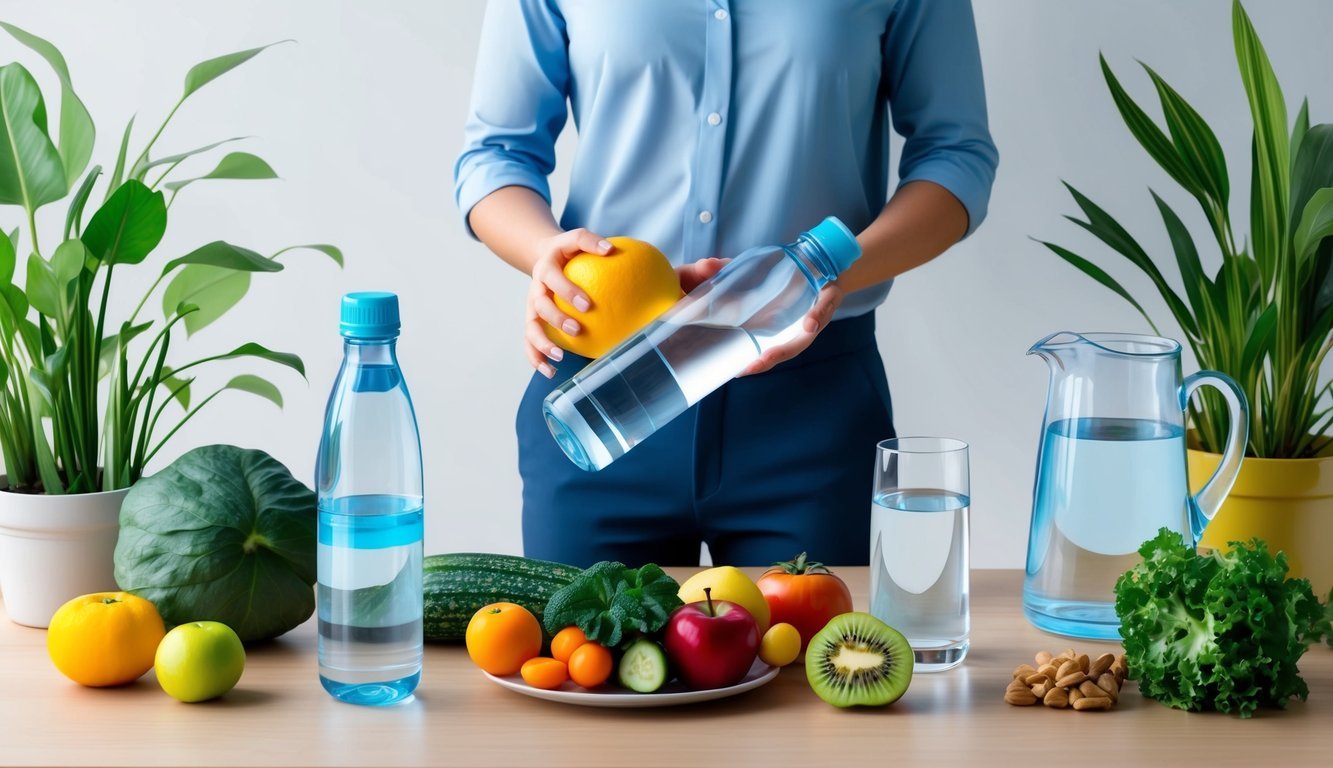
Caffeine is a popular stimulant, but I’ve learned that too much can lead to dehydration.
It increases urination, which can push my body to lose more fluids than I take in.
I typically enjoy my coffee or tea, but I try to keep it moderate.
Drinking excessive amounts can make it harder for me to stay hydrated.
When I cut back on caffeinated drinks, I notice a difference in how I feel.
My energy levels stabilize, and I find it easier to maintain my fluid balance.
Instead of reaching for another cup of coffee, I consider hydrating options.
Herbal teas or just plain water are great substitutes that keep me refreshed without the risk of dehydration.
Understanding Hydration
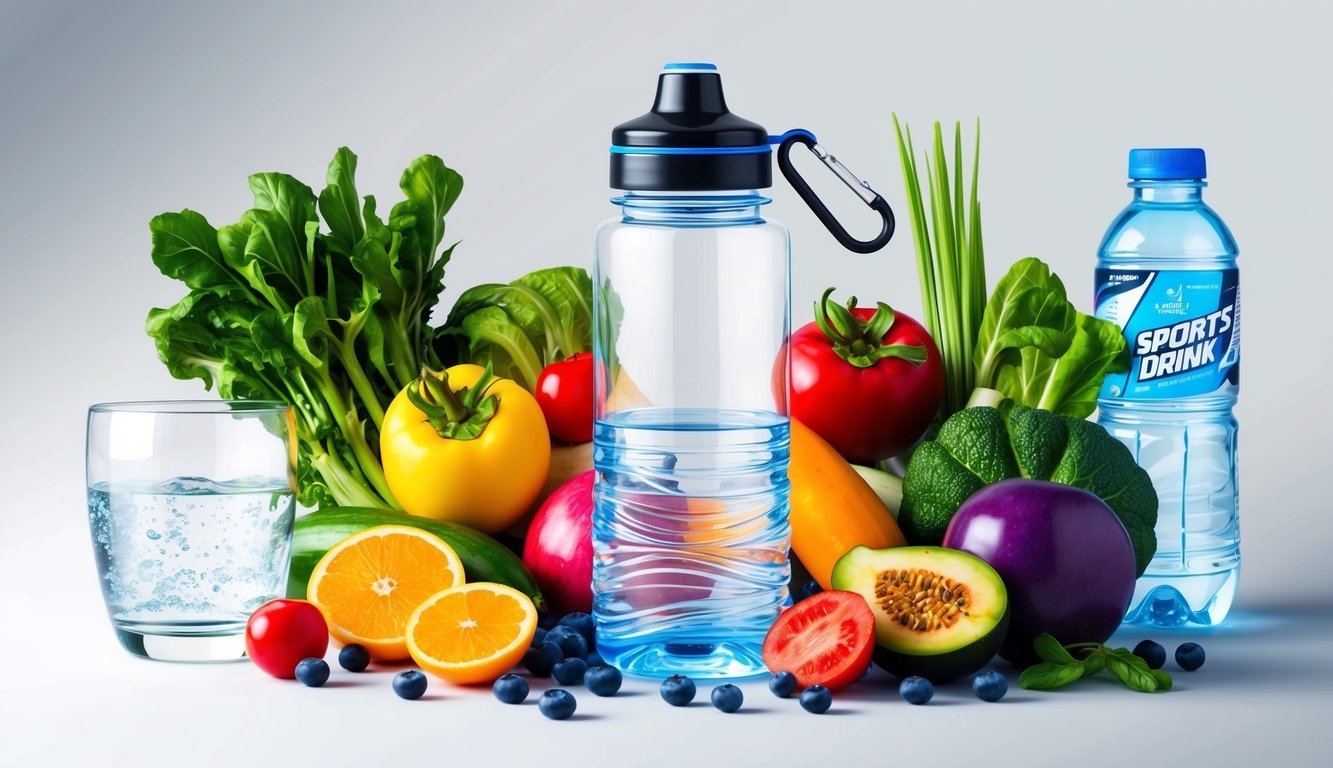
Staying properly hydrated is vital for my overall health and well-being.
Water plays a crucial role in numerous bodily functions, and recognizing the signs of dehydration can help me maintain optimal hydration levels.
The Role of Water in the Body
Water is essential for almost every function in my body.
It makes up about 60% of my body weight and is involved in everything from regulating temperature to transporting nutrients.
When I drink water, it helps to lubricate my joints and protect my organs.
Some key functions of water include:
- Temperature Regulation: Through sweating and respiration.
- Nutrient Transport: Dissolves nutrients and minerals to allow absorption.
- Waste Removal: Helps flush out toxins through urine.
By ensuring I consume enough water daily, I support my body’s ability to function smoothly, boosting performance in my daily tasks.
Staying hydrated helps regulate my energy levels and keeps me feeling refreshed throughout the day.
It also allows my body to maintain a healthy metabolism, ensuring that nutrients are properly absorbed and utilized.
As a result, I can stay productive and focused without feeling sluggish or fatigued.
Dehydration Symptoms and Risks
I can experience dehydration if my fluid intake is insufficient, especially during exercise or hot weather.
Common symptoms include:
- Thirst: A sign my body needs hydration.
- Dry Mouth: Indicative of insufficient saliva production.
- Fatigue: Lack of energy can stem from dehydration.
- Headaches: Can be intensified due to fluid loss.
The risks of dehydration go beyond discomfort.
Severe dehydration can impair cognitive function and lead to kidney problems.
Staying aware of these symptoms helps me take action before they escalate.
Monitoring my fluid levels, especially during intense activities or in extreme heat, can safeguard my health.
Electrolyte Balance Essentials
Maintaining the right balance of electrolytes is crucial for hydration and overall health.
I’ll highlight the key electrolytes that play significant roles in our bodies and the signs to watch for if something seems off.
Key Electrolytes to Know
Electrolytes are minerals that carry an electric charge and are pivotal for several bodily functions.
Here are the main ones to keep in mind:
- Sodium: Regulates fluid balance and supports nerve function.
- Potassium: Essential for muscle contractions and heart health.
- Calcium: Plays a role in bone health, muscle function, and nerve signaling.
- Magnesium: Involved in over 300 biochemical reactions, including muscle and nerve function.
These electrolytes are primarily obtained from food and beverages.
For instance, bananas are famous for potassium, while dairy products are excellent sources of calcium.
Ensuring a balanced diet helps maintain optimal levels of these essential minerals.
Signs of Imbalance
Recognizing the signs of electrolyte imbalance can help prevent health issues.
Here are some common indicators:
- Muscle Cramps: Low potassium or magnesium often cause this.
- Fatigue: Deficiencies, particularly in sodium and magnesium, can cause this.
- Headache or Confusion: Dehydration or an imbalance in sodium levels might cause this.
- Irregular Heartbeat: Significant imbalances in potassium and magnesium might cause this.
If you experience any of these symptoms, you need to evaluate your hydration and electrolyte intake.
Staying attentive to these signs can guide timely adjustments in diet and fluid intake.

